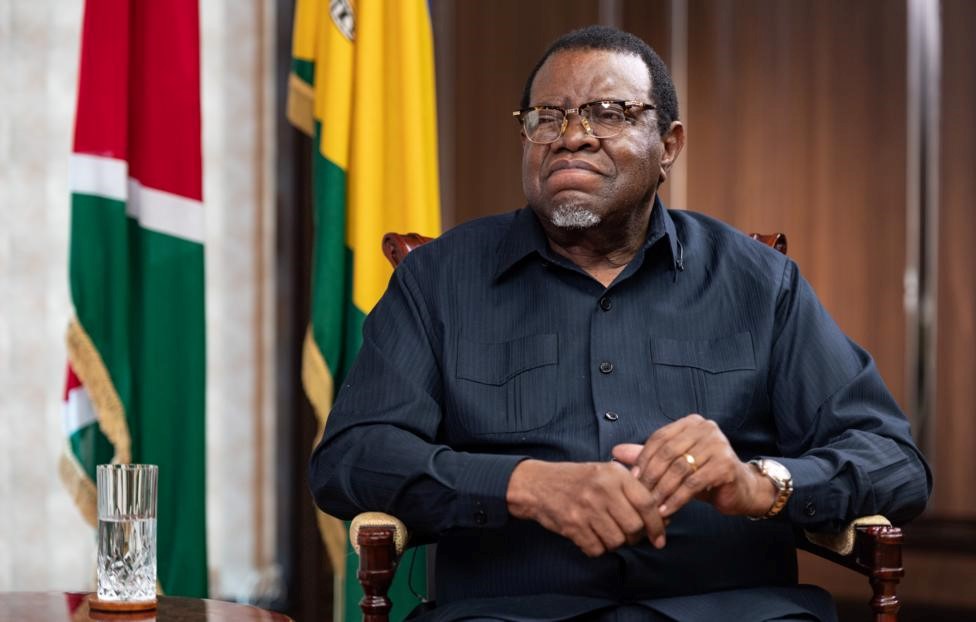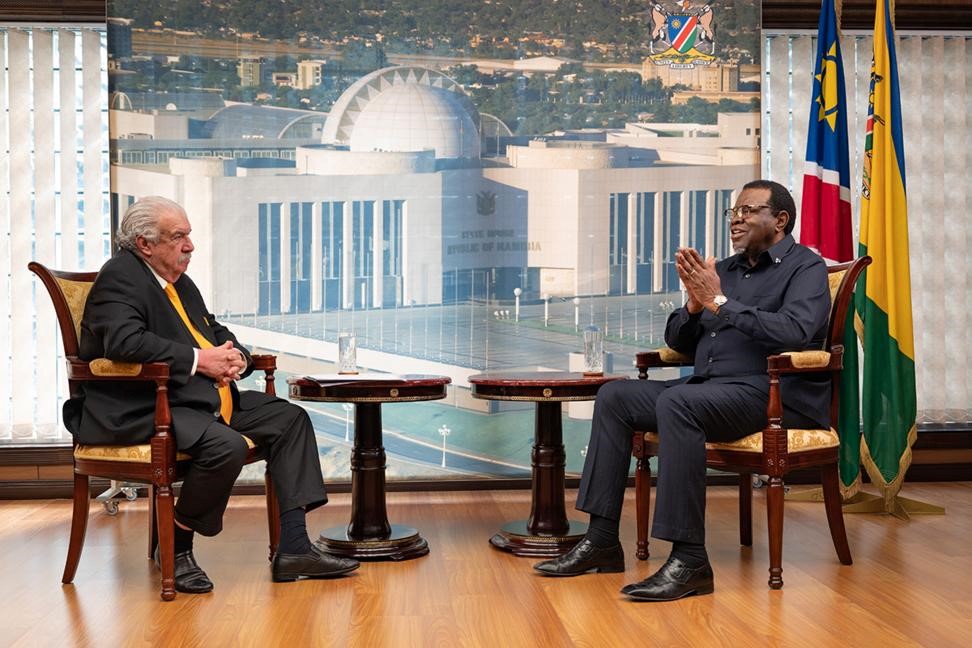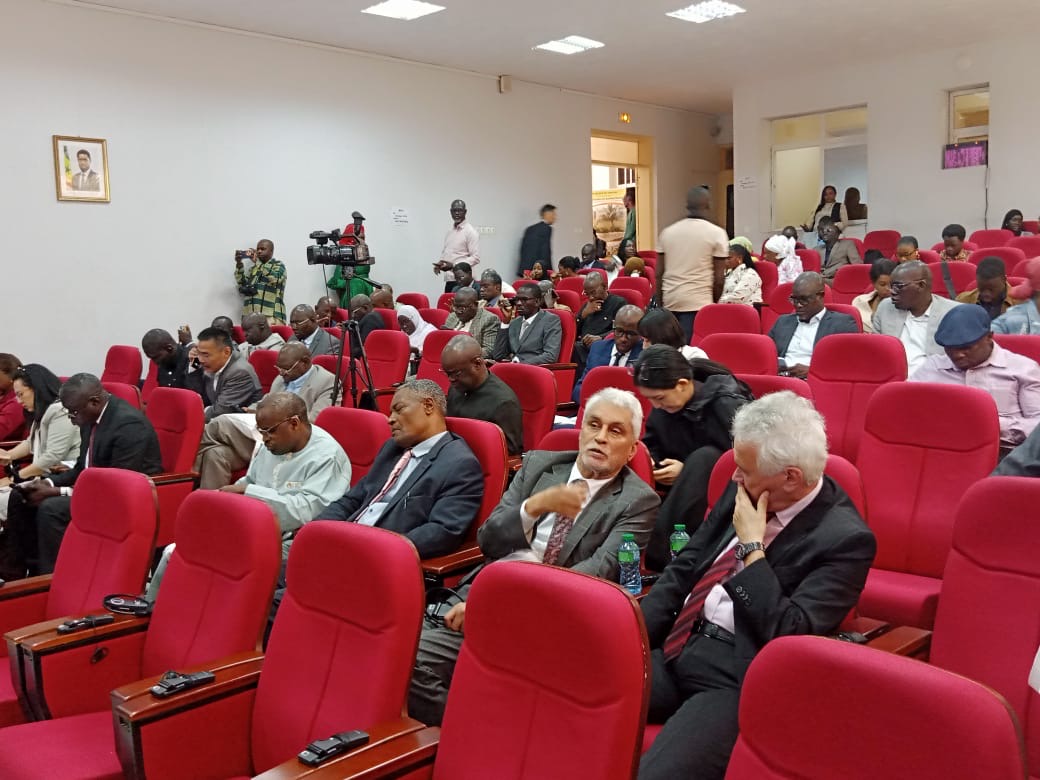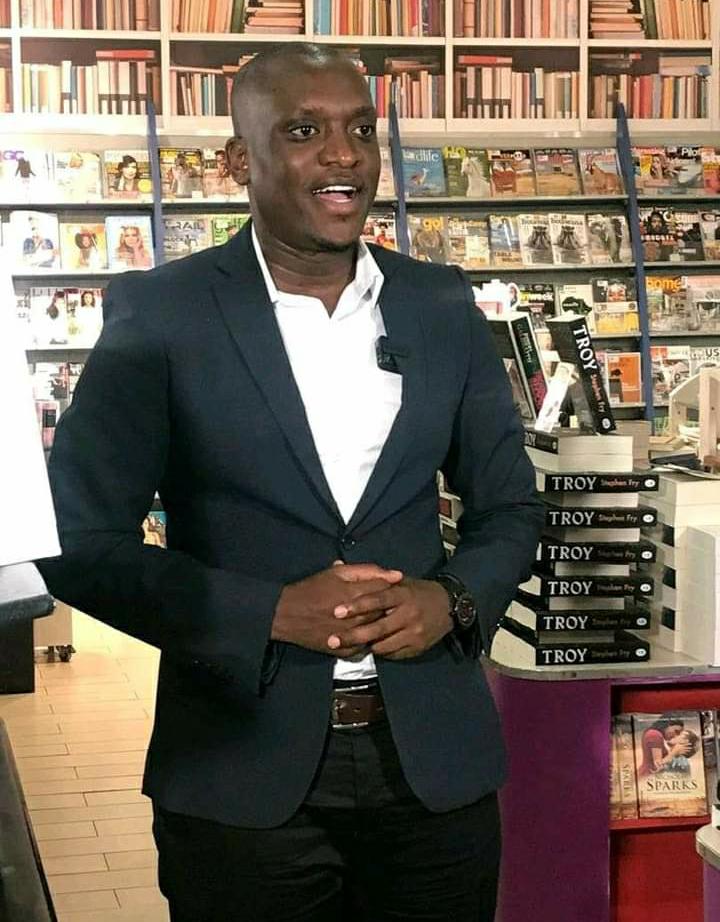
President Hage Geingob of Namibia (File Picture)
In his exclusive interview to Mikhail Gusman, First Deputy Director General of TASS, Hage Geingob, President of Namibia, told about his expectations from the visit to St. Petersburg for the Russian–African summit, his attitude towards the conflict in Ukraine, and also named the main problems faced by his state and explained why Namibia is a boutique country where tourists from Russia should come.
– Mr. President, thank you very much for sparing your time. This is a great privilege. The whole Namibia celebrated the Independence Day a few days ago. First of all, please accept our congratulations with this great holiday for all Namibians. You know, Russia and Namibia have a long history of relations, and they have always been very good. But what do you think about our current interaction, and what are the areas where we should achieve greater progress?
– Thank you very much for coming to talk with us. You mentioned our independence. First of all, I would like to thank Mr. [Vladimir] Putin, President [of the Russian Federation]: he was among 30 state leaders who had sent congratulations to us on this important day. I would like to thank him for this. I often tell people that each person taking part in the struggle for liberation from oppression received support from the Soviet Union wherever he or she struggled. That is why we have always believed in these relations that began long ago and were interrupted for the reasons beyond our control – due to what happened to the Soviet Union. There was a pause after the period when we received great support from the USSR. But now we are moving forward.

The Russian ambassador in Namibia is good. There are things that we can do together. At present Namibia is a stable country but unemployment is a great problem. So, our people are happy but they have no food. Everybody can come and say: “You are suffering, your government does not take care of you”. That is why we want our friends to join us. There are many areas where we can cooperate. First of all, in agriculture. Secondly, we are mastering the new area called “green hydrogen”. We want to become the country suitable for this. We have a poor region for agriculture in the south of the country, it needs irrigation. All these are areas where we can cooperate, and they are boundless. I always tell that those who supported us in our struggle for independence should now come and also cooperate with us in the economy.
– As you know, Mr. President, the second Russian–African summit will take place in this July. And, as far as I know, you are planning to participate in this summit in St. Petersburg. What are your expectations from it? What do you think about this form of cooperation between the African countries and Russia?
– This is good. Such conferences are very important. Because they enable to restore long-term relations and then to discuss seriously the areas where the Russians can help Namibia and Africa. And also to see how the [idea of] new world can be promoted.
The world is becoming very complicated for small countries. I am concerned that the world is turning into a single-pole system with a single center of power which dictates [its will]. And then it’s all over with small countries like ours. That is why we believe in a bipolar system or multilateralism. We believe that such meetings as the Russian-African summit strengthen the relationship. So, there is no single pole of power dictating to the world. But if there is a creative initiative, friendship between the Russians and the Africans regenerates, and we can see where to move further without being at enmity with somebody. But friendship should continue in the sense that we must decide what we want to do together, without any exploitation and the like. That is why such meetings are very important.
– Your answer sounds as the synopsis of your future speech at the summit in St. Petersburg.
– (Laughing) Yes, I’ll add this.
– Are you planning to deliver a speech at the summit?
– I’m keen to. I have never been to St. Petersburg before.
– You’ll have a unique opportunity. And the time will be very good for this. It will be July, and the sky will be bright as at daytime all around the clock. White nights.
– Of course, we have problems in Africa, and not only economic ones. Some countries are regressing. Military coups happen. In Africa we have problems that separate us. So, it is good that we can talk to friends and guide each other.
The main problem is to eliminate poverty and unemployment. Our problem here, in Namibia, is unemployment among the youth. When you are young, and you have no work everybody can lead you astray. This issue is very serious for us, as well as agriculture and industrialization in Africa. People are complaining that Africa provides raw materials to other countries for implementation of industrialization and development of technologies in them. We want people to come here, to have excellent jobs here and to develop technologies here as well. Otherwise there will be problems in Africa.
– This leads me to the next question. You are in the middle of your president’s term now. What were your main objectives when you started? Which of them have been implemented, and what is still to be done?
– My term will be over in less than two years.
– Still a lot of time.
– I used to be Prime Minister of Namibia as well. We had a very separated society. There were white people who owned everything. And we came to bring about reconciliation. It is impossible just to deport the white people from Namibia to Germany, they won’t assimilate there. So, the previous president told them, and once he also told the German Minister of Foreign Affairs: “Tell your people in Namibia that they are Namibians. They should know that they are Namibians and start to behave as Namibians”. This mindset is still preserved, and some people still think that they have another home.
Tribalism still occurs sometimes. We don’t distinguish tribalism from racism. I have mentioned this, and I don’t want any of them. And we are doing well.
There is also a problem with classrooms and quality of education. People are not properly prepared for work because of this. There are other things that we should address, that I will concern myself with till the end of my term until I achieve success. I believe in processes, systems and institutions.
– You know, Mr. President, that the global community is still fighting the pandemic of coronavirus disease. What is the current situation with the pandemic in Namibia, and what efforts shall we make to protect ourselves against the pandemic?
– This pandemic has made the world understand that we are all united.
– Exactly.
– No discrimination. Rich countries, white people, presidents. I was one of the first to catch the infection from my wife. And the Vice-President with his wife, and the Prime Minister. There was no difference. Everyone felt affected. This has taught us that we are all united. And a problem which has affected any corner of the world will eventually come to you. We keep it under control now. We stopped weekly reports that we used to make, they were presented by the Minister of Health. And there are times without any new cases of infection. And no deaths, this is good.
– Mr. President, Namibia participates in many international organizations. Especially many African organizations. At present people speak a lot about the future of Africa. What do you as an experienced politician think about the future of Africa? About the future of Namibia, your neighbors and the whole continent?
– The future of Africa is bright. We had the first generation of African leaders. The founding fathers: Kwame Nkrumah, Sékou Touré, Nyerere, Kaunda and others. And also in South Africa – President Mugabe, Comrade Nujoma, Comrade Mandela.

Mikhail Gusman, First Deputy Director General of TASS, and Hage Geingob, President of Namibia © Pavel Trubnikov/ TASS
— What do you think of Patrice Lumumba? One of universities in Moscow is named after him.
— Yes. That was a different time. When Lumumba was killed, Africa was different. The revolutionary thinking. Those were leaders who left their mark everywhere.
That generation of leaders taught us to fight for our freedom. But they did not tell us what to do next. You say, “Once you are free, everything is OK”. That’s why Africa has problems now. What is there after independence? The second generation of leaders went through military coups, the one-party system. Now we have leaders who were young, who saw all that. If a leader comes to Namibia after me and ruins everything, that’s going to be his problem. Still, I hope that love of peace will guide every leader. We have seen successes and failures, military coups. But that’s the reality. Africa is correcting itself; the Africans are thinking about Africa’s problems.
— Mr. President, we can see that Namibia is home for various peoples. They live here in peace and friendship: the Ovambo, the Herero, the Damara, the Nama, and many others. How do you manage to maintain peace between peoples with different cultures? It is possible not in every African country; however, you have succeeded in that. How?
— […] I always say that Sam Nujoma (the 1st President of Namibia — a comment by. TASS) — is not an Ovambo, nor he is a Damara. Sam Nujoma is a Namibian. He is a leader. Each leader who comes from common people is committing – well, not a class suicide but, so to speak, a tribal suicide. (Laughs.) He must leave the tribe. He must not perceive himself as part of any particular tribe. You have to see all tribes as your people. Sam Nujoma gave a very good example of how to treat everybody equally. And [former] President [Hifikepunye] Pohamba was of the same kind. […] Unity is power. South Africa wanted to create Bantustan (a territory used as “reserves” — comment by. TASS) to separate peoples, individual nations with their own cultures. The South West Africa People’s Organization (SWAPO) said, “No!” If we fought and have won, why should we betray the principles, for which we were dying? But unfortunately, I have to admit that, to my deepest disappointment, there are some individuals now among young people, who believe that we’d better live separately. However, nothing is going to work out for them.
— Namibia is a country with rich animal life. Yesterday we had a chance to see it: elephants, giraffes, lions… A lot of people come here. Some of them come to hunt with a camera or camcorder, others come for real hunting. What steps do you take to protect Namibia’s unique animal life?
— We do cope well with this task. Once, two young men were sent to our country to deliver a lecture on wildlife protection. I told them, “Look, you have a rugby team called “The British Lions”. But you don’t even have any lions. You have killed them all, but still you come to lecture me. And we have a lot of lions because we protect them. So, we in Namibia cope well with wildlife protection. We have a lot of lions. But when their number becomes too large, there occurs a conflict between people and animals. Sometimes elephants destroy houses. That’s another issue that we have to tackle.
— I would like to ask you to describe Namibian landscapes. Our conversation will probably take many hours because Namibia is a unique place in the world. The Fish River Canyon, the famous Hoba meteorite, the deserts — one can find everything here. Which places would you recommend for tourists to visit? Please be our guide in Namibia!
— Welcome to Namibia, a boutique country! We have a population that is not too numerous, clean air, and very well-kept national parks. And our people are very amiable. Yes, we do have problems, and we will solve them. But you will be under protection. Namibia is open for business with all countries. Namibia is open for tourism— Russian tourists should come to us in the first place. People are greeting you with a smile. We are a small people but we have been fighting for Africa. With your assistance.
Therefore, we call our country “the land of the brave”. So, in the land of the brave people will greet you with a smile.
— Thank you, Mr. President. In the beginning of our interview, I congratulated you on the Independence Day — a great holiday. But you also have a lot of religious and cultural holidays. Different groups of people have their own holidays. What is your favorite holiday? How do Namibians celebrate their holidays?
— Apart from the Independence Day, there is August 26 — the day when we began our struggle. This day is very much honored by us because we remember our heroes, both men and women, who sacrificed their lives for the sake of this continent. Therefore, August 26 is a very important day for us.
— I would like to ask you about a special part of the Namibian culture, that is, cuisine. It is essentially a combination of different cuisines. What do you think of it, and what is your favorite meal?
— I am not quite a big eater.
— That’s why you are so fit!
— Believe it or not.
— I always believe a President!
— I take my oshikandela (drinking yoghurt — a comment by. TASS) and pap (porridge — a comment by. TASS) with me. Because when I’m traveling, in certain countries… For example, when I was in China, it was difficult to get accustomed to the local cuisine. Even Botswana’s President comes and asks, “May I have a bit of your pap and milk?” That’s what I have for breakfast. And, of course, meat! We have the best meat in the world. But eating too much meat is not good for health.
— But you have great meat in Namibia!
— Yes. With fish, everything is OK, too. But the Namibians do not eat fish, it is difficult to convince them to eat fish. They still prefer red meat. Although red meat is not always good for health.
— Your colleagues told me that you are a great football fan. When did you begin to go in for it? What is your favorite team— in Namibia or abroad?
— I was in exile for a long time and was influenced by the outside world. We used to go to South Africa to play football. I can say that football was my life. I loved sport, and especially football. We have just had a good match with Cameroon’s national team. Cameroon has a very strong team. We almost beat them. During the last minutes, the match came to the 1:1 draw. This is a great achievement for us. I sent them a message immediately. (Laughs.) That’s why I have many favorite teams. My wife laughs at me. I support a team in the beginning of its career. If a team is an outsider, I support it as well. I like good football. I like it when a team that was an outsider becomes a successful team. Also, I have been rooting for Liverpool. Since the 1970s, because they are the first team that supported the struggle for black people’s rights. That’s how my passion for Liverpool began — for political reasons. (Laughs.)
— When you visit Saint Petersburgh, we have a very good football team there, FC Zenit. It is probably one of the best in the world. And definitely one of the best in Russia. So, when you have some free time, given your tight schedule, you can visit FC Zenit’s home arena — Zenit Arena.
— I like sports in general, that’s why I try to keep myself fit. Age has its effect, though. (Laughs.)
— How do you spend the rare minutes of rest? How do you spend time with your family? Please tell us about it.
— I listen to the radio, watch TV. I watch everything. The Russian channels have just been disconnected. Earlier, I used to watch all channels and compare. I watch South Africa, too. Sometimes, they offer something good, sometimes not. So, I watch and read the news, to find out what is going on in the world. Once I visited [Cuba’s leader Fidel] Castro, and he told me, “You must read. You speak English, you should know what is going on in the world, follow the news”. Three years later I became a president. (Laughs.) Therefore, reading and watching news, comparing all that propaganda, and particularly the propaganda from the Western countries, is important. You watch and try to understand what is their message to the children. The propaganda story-telling and all that. You have to compare different sources and make your own conclusions. That’s exactly what I’m doing.
— May I give a piece of advice to President? If you want to read unbiased, well-balanced, and absolutely honest truth about the world – please read TASS news feed! That’s my advice.
— (Laughs.) Okay!
— And you will see that it’s good advice.
— I will see for myself!
— I would like to ask Mr. President to say a few words to the Russians. Shortly before your visit to Russia, could you say a few words for the Russians, for whom it is very important?
— First of all, I would like to greet President Putin and to ask the Russians to support their leader. We in Africa believe in multilateralism. We do not believe in the unipolar model, with just one power dominating in the world. I am glad that China brought suggestions for settling the issue with them. We support that. When we were asked, I said, “When a country feels a threat, when it is surrounded by neighbors, whom it does not believe to be friendly…”, and I remembered the Cuban Missile Crisis of the 1960s. There were missiles in Cuba, and the Americans did not feel safe, and that was a serious crisis. Therefore, if a country has problems with neighbors, whom it does not believe to be friendly, we have to sit down and find a solution. So that everyone could feel safe. So, I wish you all the best. Just like President Putin, who wished all the best to us in his greeting.
We have gone a long way. We are grateful to you for what you did for us. When we were fighting, three countries vetoed the UN resolution on apartheid: France, Great Britain, and the USA. They supported the apartheid! Just one veto would have sufficed, but three! To demonstrate support for apartheid. You were supporting us. We hope that soon there will be peace. We support China’s suggestions to put an end to the conflict [in Ukraine]. However, some countries choose escalation rather than de-escalation. So, as one American professor said, “they are interested not in terminating the war but in removing the president”. If this is the case, you have the right to defend yourselves. As I have said, wars are viewed as a continuation of politics. The idea is to sit down at the negotiating table. Escalation, escalation…But it is not a solution to the problem. So, I would like to wish you all the best. Thank you for what you are doing for us, even during the pandemic. Please do not think that we do not appreciate it. We do appreciate. Thank you very much!
— Thank you very much, Mr. President, for your time!









